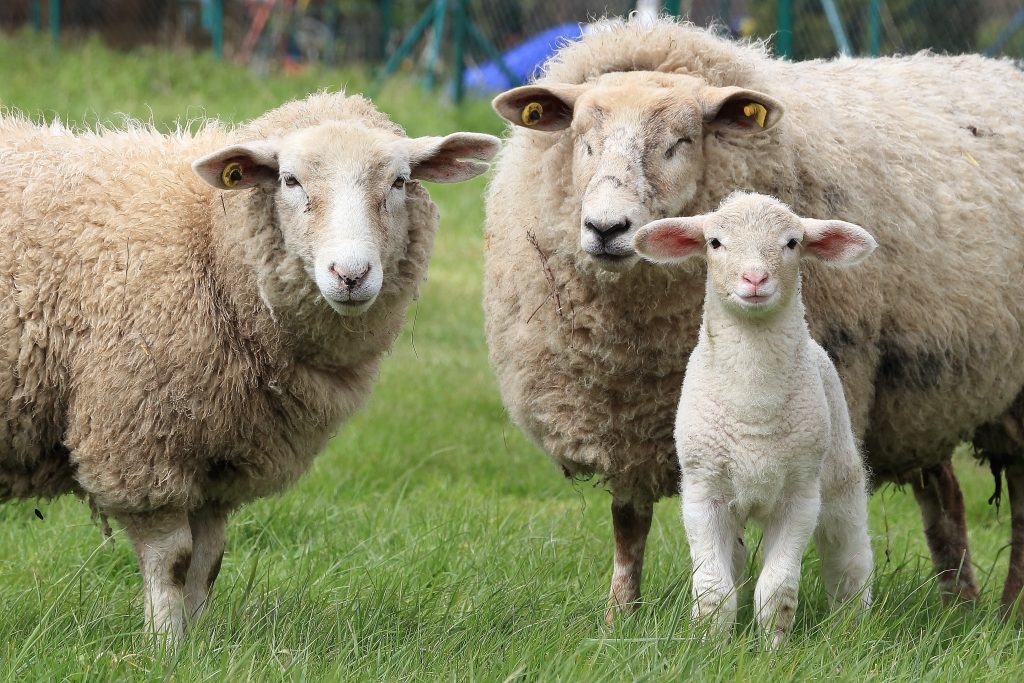Time to remain vigilant for fluke despite COVID-19
13th May 2020
Last winter may have seen a relatively low incidence of fluke across the UK, but there are still individual farms reporting problems with chronic fluke in sheep warn SCOPS/COWS experts.

Whilst the UK may be on lockdown due to COVID-19, livestock farmers are warned that liver fluke is carrying on as normal. Despite the relatively mild winter experienced across the UK, average temperatures have generally remained below 10 degrees Celsius from December 2019 to March 2020, so the development of fluke on pasture will have slowed or even stopped during this period. Followed by a warm April, also one of the driest on record, snail activity and subsequent fluke development on pastures will also have been low this spring. However, farmers are urged to not become complacent about the risk of fluke later in the season.
“It is wise to test adult stock now to determine the need for any treatment to limit pasture contamination for the rest of the year.” Says Moyna Richey of APHA. “Across the APHA network this winter and early spring we saw a small number of cases where chronic fluke caused issues in pregnant ewes. In addition, we detected fluke eggs in faecal samples from sheep on farms in Wales and the South West of England” Moyna adds, highlighting the variation in incidence of fluke between regions and even neighbouring farms.
Action now could help reduce fluke risk in the Autumn
With temperatures beginning to rise as we go into the summer, the top priority now is preventing contamination of pastures with fluke eggs because reducing contamination of pasture with eggs now is key to mitigating risk in the autumn. A single adult fluke can produce thousands of eggs in one day meaning infected stock could be shedding large numbers of eggs, so if you haven’t treated this spring, now is a good time to talk to your vet about checking your livestock. Options are:
- Screen using faecal egg counts (FEC)– collect samples from 10 sheep or cattle, bag separately. They will be combined by the lab into a single composite for counting.
- Screen using a copro-antigen test – collect samples from 6-10 sheep or cattle, bag separately. They will be tested individually by the lab.
- Fallen or dead stock are also very useful to check for fluke.
- Bulk Milk Tank monitoring – useful for dairy herds. Quarterly or monthly monitoring can help assess fluke exposure in cows and testing your herd now will provide a base line value and help identify when/if levels of exposure begin to rise later in the year.
With the current COVID restrictions, it is important to remember that sample collection and submission may be affected. Before you begin sampling, check with your veterinary practice about any changes to their usual sample submission and testing procedures. . For example, if you are submitting samples by post, consider any delays and check which day the recommend you post samples.
Treatment
Most of the liver fluke inside animals at this time of year will adults so treatment with a product that targets adult fluke only is recommended. Products containing albendazole, oxyclozanide (or clorsulon in cattle) are effective adulticides. For albendazole, remember that the dose rate for fluke is higher than that used for roundworms, so check the instructions.
When dosing always observe the COWS/SCOPS 5R’s. Treat the Right animal with the Right dose of the Right product at the Right time and in the Right way
Key points:
- Sample 6-10 animals for faecal egg counts or copro-antigen testing. If any come back positive considering treating that group of animals
- Speak to your veterinarian about any changes to sample collection and submissions
- Check dead/fallen stock to identify fluke infections in your herd/flock
- If adult fluke are detected, treat with a product that targets adult fluke
- Prevent pasture contamination with fluke eggs now to reduce risk of disease in Autumn
